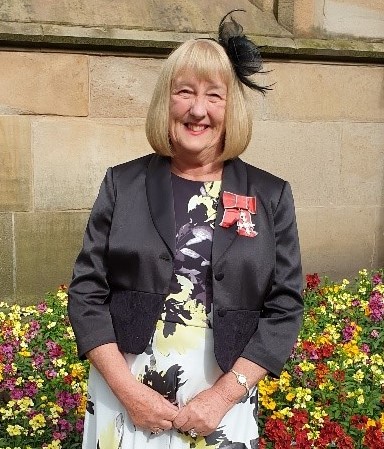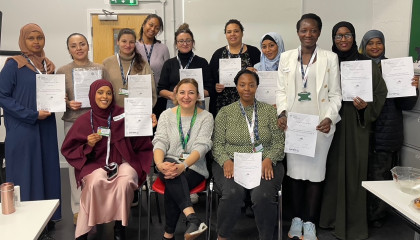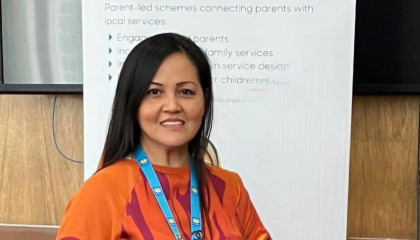You are here: News New research reveals barriers to take-up of early education entitlements for disadvantaged children
A range of barriers are preventing disadvantaged children in England from taking up their entitlement to 15 hours of funded early education, but national and local action could change this.
That is the conclusion of a major study published today, funded by the Nuffield Foundation and undertaken by the Centre for Evidence and Implementation, UCL Centre for Education Policy and Equalising Opportunities, Coram Family and Childcare, and early years expert Ivana La Valle.
Confusion about the different childcare entitlements, and difficulties with the application process and restrictions on how funded hours can be accessed, as well as additional charges to access them, all make it more challenging for parents to navigate the system. Weak guidance from central government means that local councils do not have the levers needed to challenge such practices and ensure that funded provision is genuinely free and inclusive for families who need it most.
The study identified where local action can change this picture for disadvantaged families. It found that take-up is higher where councils make early education a key priority for children’s outcomes and wellbeing, and where they have a relentless focus on removing barriers to take-up among disadvantaged families. In-house Family Information Services with enough resources and the right skills to give tailored support to families, including home visits, are important, along with the support of other professionals in families’ lives, like health visitors.
There is consistent evidence about the benefit of early education in children's development, and the 15 hours funded early education entitlement for all three-to-four-year-olds and disadvantaged two-year-olds in England was introduced to support children’s development and reduce inequalities in participation in early education. While the take-up of early education has risen considerably since the introduction of this policy, a substantial minority of children, especially disadvantaged children, are still missing out on their 15 hours entitlement.
This new study explores why some families do not take up their entitlements, and sets out actions that can be taken to increase take-up and reduce inequalities in participation in early education. The study included an extensive programme of research using national data and interviews with local authority early years staff, parents, and early education providers*.
Key findings include:
- Parents find the different entitlements confusing and difficult to navigate. Councils say lengthy application processes and complex systems make accessing funded childcare difficult for parents, particularly those with English as an additional language or with low literacy or digital skills. This complexity for families is mirrored by the experiences of childcare providers, who speak of significant time spent administering the entitlements.
- The additional childcare entitlements for working families (which are being expanded in a phased roll-out) have complicated the picture further, with conflicting and confusing messages to parents about eligibility and the purpose of different entitlements, as well as adding to the administrative burden for providers.
- There is ongoing concern from childcare providers about the adequacy of funding for the 3-4-year-old entitlement, and inadequate funding to support disadvantaged children, particularly those with special education needs and disabilities (SEND).
- Weak regulation of the delivery of funded hours has triggered responses from providers which create further barriers to take-up, such as constraining the number and structure of funded places offered, and asking parents to pay additional charges. A two-tier system of provision is emerging in some cases, which, at its most extreme, is inferior and stigmatising for parents using the disadvantaged two-year-old entitlement.
Lydia Hodges, Head of Coram Family and Childcare, said:
At a time when childcare seems to rarely be out of the spotlight, these findings show that children who may benefit the most from early education are often missing out. But the study also shows that need not be the case - local councils can and do make a real difference in many areas. There’s excellent practice to learn from. There are national lessons to be learned too. Right now, disadvantaged children are entitled to only half the hours of funded early education that children with working parents get, and at a later age. We have to ask ourselves if this is what we want for our children. Childcare is important for enabling families to work, but going to nursery isn’t just about childcare, it’s early education too. The Government has recognised that in their commitment to breaking down barriers to opportunity for every child, and their ambition to boost the number of children reaching their early learning goals. To do that, the funded entitlement must be accessible to all children.
Eleanor Ireland, Education Programme Head at the Nuffield Foundation said:
This study provides important insights into why some families, particularly those experiencing disadvantage, don’t take up their early education entitlements, and what local authorities and the Department for Education can do to improve take-up. It makes important recommendations for changes to the way the policy is designed and delivered to reduce inequalities in access to early education, which are vital in the context of the expanding childcare entitlements for working families.
To support higher take-up of the 15-hours entitlement, the report recommends national policy changes:
- A ‘fair’ funding model that fully covers the costs of delivering funded hours, including the resources required to support children with SEND and other disadvantaged groups.
- The above should go hand in hand with strengthening guidance, and supporting LAs to ensure that the 15 hours are genuinely free for families and admissions are inclusive.
- Recognising the key role local authorities can play in ensuring that children who can benefit the most from early education, access the 15-hours entitlements, with separate, dedicated funding to deliver the policy locally.
- A universal entitlement to 15 hours of funded early education for two-year-olds, which would reduce confusion amongst parents of 2-year-olds regarding eligibility, and reduce the administrative burden for providers and parents, likely boosting participation among disadvantaged children.
And suggests the following local actions:
- Greater use of tailored one-to-one support to families who face more barriers, particularly home visits, which were found to make a difference.
- Making early education entitlement ‘conversations’ a routine part of the work of all family-facing professionals.
- Collecting detailed, up-to-date information on local places available to meet different needs, to more actively manage the supply of funded provision, and to ensure there is sufficient inclusive provision available.
-ENDS-
Notes to Editors
- For further information and interviews please contact: Emma Lamberton, Senior Communications Manager at Coram at emma.lamberton@coram.org.uk / 07908 827908
- * The study, carried out in 2023 and 2024, included: a national survey of local authority early years staff; qualitative research with parents, early education providers and local authority early years staff; extensive analysis of secondary data on factors associated with take-up and local authority variations in take-up; consultations with stakeholders.
About the research partners
Centre for Evidence and Implementation
The Centre for Evidence and Implementation envisions a world where people can improve their lives through support that is equitable and effective. We are a global, for-purpose evidence intermediary and advisory organisation dedicated to using the best evidence in practice and policy to improve the lives of people facing adversity.
Centre for Education Policy and Equalising Opportunities
The Centre for Education Policy and Equalising Opportunities (CEPEO) is a multidisciplinary research centre based at University College London. Our work seeks to inform understanding of inequalities in outcomes and opportunities, and how policy can be used to reduce these gaps.
Coram Family and Childcare
Coram Family and Childcare works to make the UK a better place for families, focusing on childcare and early years to make a difference to families’ lives now and in the long-term.
For more information, please visit:
Website: coramfamilyandchildcare.org.uk
Twitter: @CoramFamChild
Facebook: @famchildtrust
Coram
Coram is the UK’s oldest children’s charity, supporting children to have the best possible chance in life since 1739. We work as a group of specialist organisations helping more than a million children, young people, families and professionals every year.
We support children and young people from their earliest days to independence, creating a change that lasts a lifetime. We help build their confidence; we help them to develop skills; we uphold their rights, we support practitioners in the areas of fostering and adoption and we find loving adoptive families for the most vulnerable children.
We work in over 2,000 schools supporting nearly half a million children, run London’s largest Regional Adoption Agency and provide free legal advice for thousands of children and families who need it every year.
For more information, please visit:
Website: www.coram.org.uk
Twitter: @Coram
Facebook: Coramsince1739
Instagram: coram.uk
Ivana La Valle
Ivana La Valle is an early years expert and visiting scholar at the University of East London. Since the launch of the first national childcare strategy in the late 1990s, Ivana she has been involved in key studies that have shaped early education and childcare policy in England. In 2018 she was conferred the award of Fellow of the Academy of Social Sciences for her contribution to early years policy research.
Nuffield Foundation
The Nuffield Foundation is an independent charitable trust with a mission to advance social well-being. It funds research that informs social policy, primarily in Education, Welfare, and Justice. The Nuffield Foundation is the founder and co-funder of the Nuffield Council on Bioethics, the Ada Lovelace Institute and the Nuffield Family Justice Observatory. The Foundation has funded this project, but the views expressed are those of the authors and not necessarily the Foundation. www.nuffieldfoundation.org @NuffieldFound
Latest news
Meet Sarah - Best Newcomer!
19 May 2025
'It takes a village'
20 May 2025
How Parent Champions Islington reached families across the community





